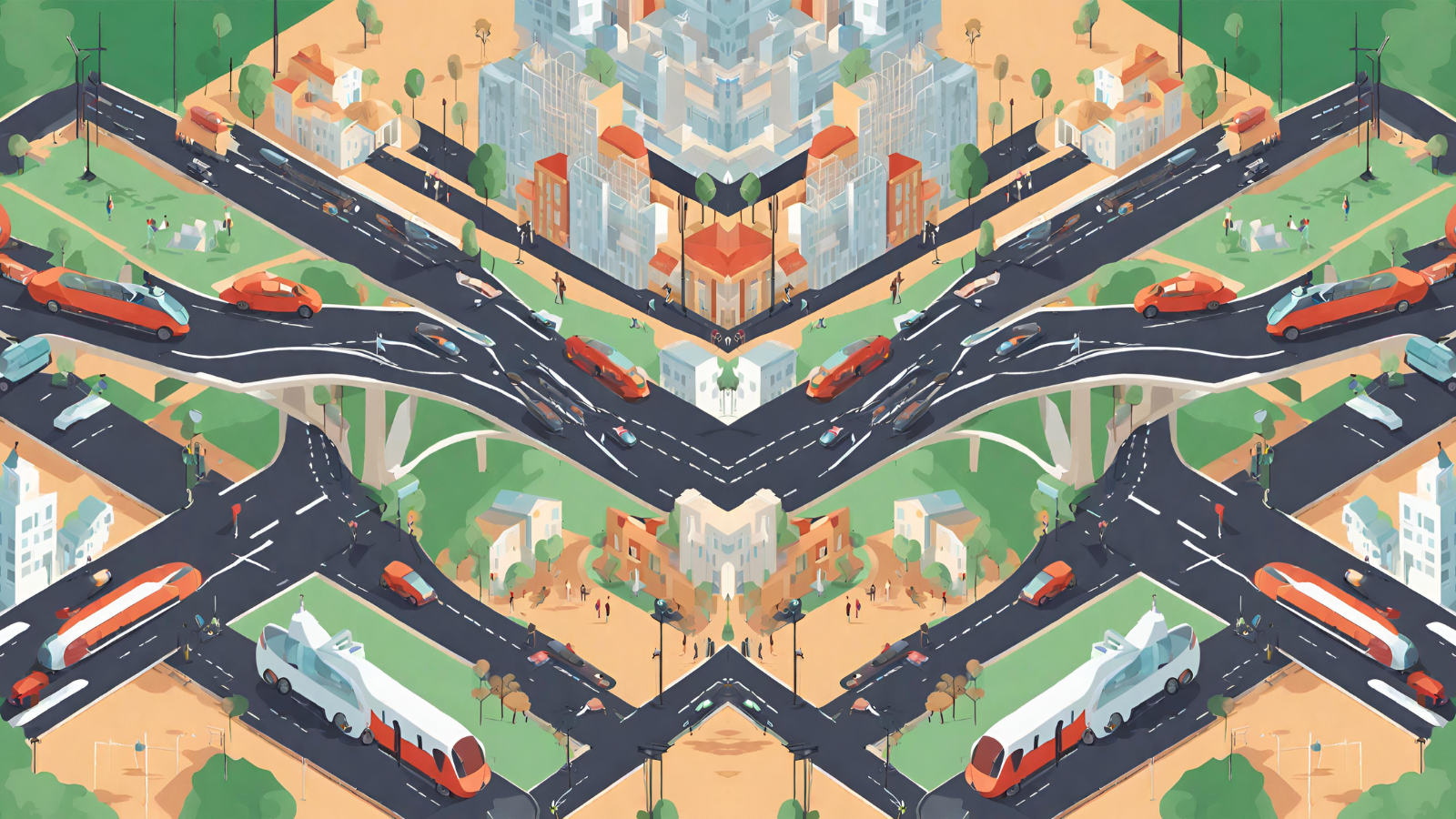Transport emissions represent about 15% of total greenhouse gas (GHG) emissions and have continuously grown since 1990 at an average of 2% annually. Its emissions are increasing faster than any other sector. This increase in emissions can be attributed to an increase in mobility, which can be linked to development. Simply put, as people increase their wealth, they have more opportunities to access more things, allowing industries to exchange and transport more goods. Additionally, due to poor land planning policies and inadequate infrastructures, people in many parts of the world still need to travel far to go to their jobs, to schools, and to access other public services.
To reach the Paris Agreement goal of 1.5°C and limit the consequences of climate change on development and biodiversity, we have to start reducing transport emissions drastically and reach at least 59% emissions reduction by 2050.
Current 2030-2035 horizon pledges by countries contained in Nationally Determined Contributions (NDCs) submissions are not enough to reduce transport emissions. Under current policies, the IEA’s Stated Policies Scenario (STEPS) estimates that transport emissions will continue to increase by 8% in 2030 and 11% by 2050 compared to 2019. It is critical that future NDCs are more ambitious, specifically for the transport sector. Currently, only 16% of the NDCs submitted by October 2021 included transport emission reduction targets, with the vast majority focusing only on reducing fuel consumption, developing low-carbon fuels, and shifting to electric vehicles. In addition, freight transport measures are largely overlooked and limited compared to passenger transport actions. Finally, NDCs also need to be developed together with long-term low emission development strategies (LT-LEDS) towards the 2050-2070 carbon neutrality horizon, so that the ambition level is consistent with what is needed to reach net-zero in 2050.
Reaching the goal of the Paris Agreement will not be possible without a push in the transport sector. In emerging countries, and even more than in the rest of the world, the decarbonizing the sector will have to go hand in hand with the required socio-economic development of the populations and access to mobility. In exploring low carbon transport futures, the Deep Decarbonization Pathways initiative identified the following requirements in order for the transport sector to decarbonize:
- Address freight transport, and not only passenger transport
- Include measures which could support the reduction of unnecessary kilometers travelled (e.g. changing urban design, industrial supply chain organisations); the shift to non-motorised and collective modes of transport (e.g. biking, rail freight, public transport); and not only a focus on the shift to zero-emission fuels and vehicles (e.g. electrification of vehicles, biofuels, green hydrogen).
- Mobilise a broad set of national policy instruments (e.g. strategic planning and governance instruments, educational and informational instruments, economic and non-economic regulatory incentives), as well as innovative international cooperation instruments to support a just transition.
In our latest publication about innovative international cooperation, we identified key lessons to accelerate the decarbonization of the freight transport sector. The critical innovation lies in approaching cooperation in a way that directly supports national development and net-zero transformations together. Taking the diversity of contexts for every country – sociocultural, economic, and policy contexts — into account, is important.
What will be important to follow at COP28?
Transport remains overlooked at the ongoing negotiations at COP28. The current draft text of the Global Stocktake does not mention anything specific about transport, except a possible insight about “Rapidly increasing the deployment pace for zero-emission vehicles”. Nevertheless, key action areas have been highlighted in the synthesis report of the technical dialogues of the first GST and at the global dialogue on transport organised under the Mitigation Work Programme (MWP) this year. For example, the MWP dialogue highlighted four key areas of transformations for the sector, which could represent a consensus for the GST too: collective and non-motorized modes of transport, energy and resource efficiency, electrification of vehicles, and low- or zero-carbon fuels will play a central role in achieving such reductions.
This year at COP28, the world will look closely at the outcome of the Global Stocktake – the world’s collective report card on climate actions. This year’s Global Stocktake aims to support implementation and provide guidance for the revision of the next Nationally Determined Contributions in 2025, and support enhanced international cooperation. The key questions for the transport sector are:
- Will transport-specific insights and the lessons of the global dialogue of the MWP be reflected in the MWP negotiation text as well as in the GST outcome?
- Will a follow-up dialogue in 2024 around enhanced international cooperation be decided in the GST outcome text and offer an opportunity to take a sectoral and country-based approach?
- Will the revision of LT-LEDS, in relation with the revision of NDCs by 2025, be reminded in the GST outcome?
As a way to support a higher ambition in transport, SLOCAT and REN21, are launching a call to double the share of energy efficient and fossil-free forms of land transport by 2030, that IDDRI, ITDP, WRI, UIC, UITP have co-initiated.
